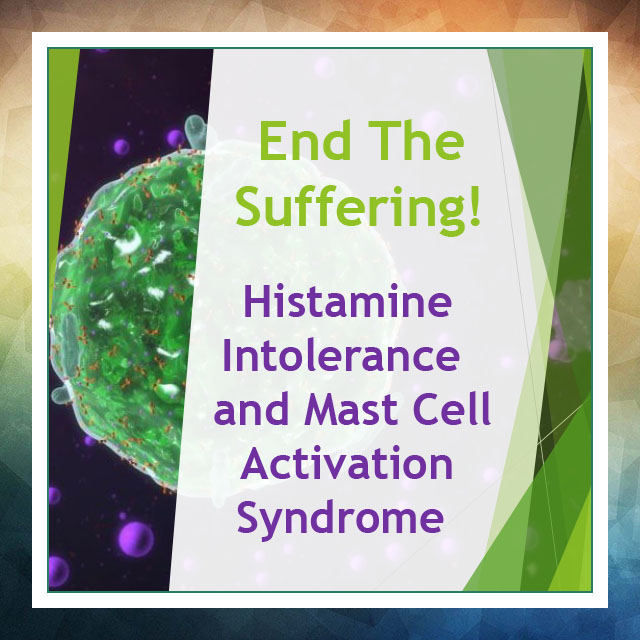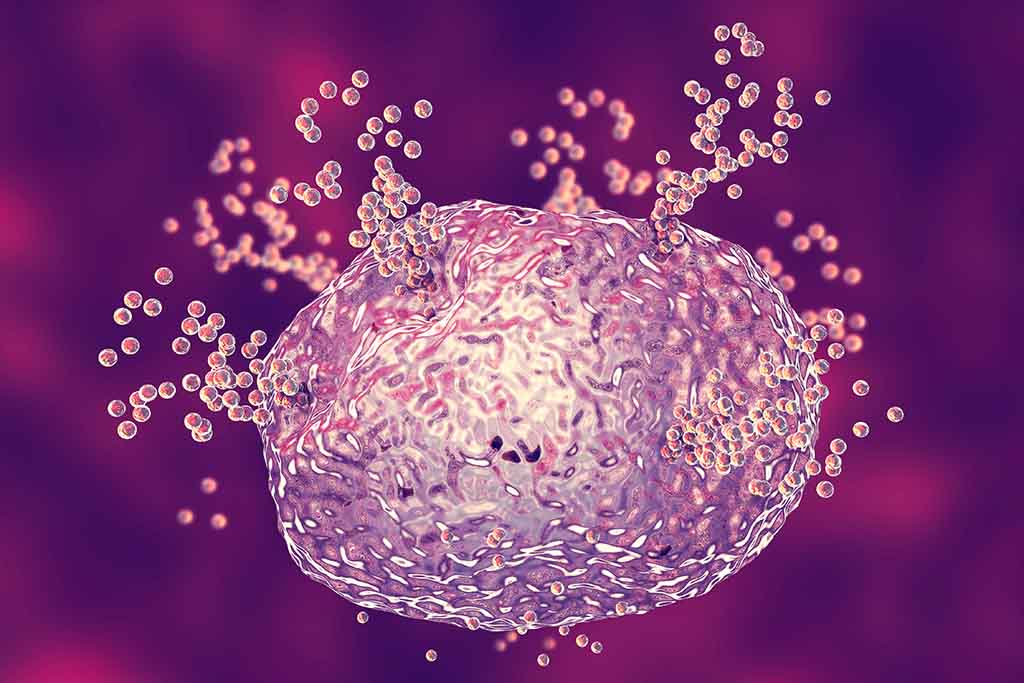
Online Training Intensive
20 Hours of Content
W/Susan Allen-Evenson RDN, LDN, FMNS
(More about Susan Here)
Do your patients experience itching/hives, congestion, sneezing attacks, tissue swelling, hypotension, hormone imbalance, tachycardia, asthma, IBS, GERD, headaches, anxiety fatigue, sleep problems, mood disturbances, and more?

Of Course, They Do!
Have they had allergy testing that fails to identify culprits for their issues, despite their symptoms often occurring after food or beverage consumption? Are they becoming food-phobic?
Do they have symptoms that aren’t food activated, yet no one seems to know the real cause?

Have they been prescribed symptom control medications that barely work, or work, but have unwanted side effects?
Are they sick and tired of being sick and tired, and not getting answers?
Have they been misdiagnosed? Is all this affecting the quality of their life?
Misdiagnosis is Common!
Could it be a Histamine Intolerance
or a Full Out Mast Cell Activation Disorder?
Clinicians in the know have histamine intolerance on their radar. But, allergy elimination or histamine avoidance diets are so restrictive. Histamine blockers or DAO supplements don’t always help. Patients are frustrated with incomplete resolution; they are tired of extreme restrictions on the foods they love. Maybe it’s more than just a histamine issue?
Your Patients Need Help!
Histamine intolerance manifests in up to 3 – 6% of the population (with a prevalence in children and as much as 80% in middle-aged women), but how much is unidentified or unreported considering the rapidly increasing number of those who suffer? During the last decade, thankfully, histamine intolerance has gained social and scientific recognition, with a significant increase in the interest of researchers to investigate this disorder. Are you up to date on your research?

Histamine has important roles in inflammatory and immune responses as well as in regulating physiological function in the gut and acting as a neurotransmitter. That said, increased levels can cause a myriad of unwanted and often debilitating symptoms, even mood disorders. And, to make matters worse, those with genomic expression affecting either direct histamine enzymes or related methylation function may even have more severe reactions!

Become An Expert And Know The Answers Your Patients Need!
Patients struggle with the conventional recommendation of antihistamine medication with unwanted side effects and restrictive histamine avoidance diets. If it’s not a typical histamine reaction, they get other medications (sometimes several). They want more than medication and diets; they want solutions to alleviate the problem in the first place!

This goes a lot deeper than diets and special enzymes, and even medications that try to hide symptoms. For some, it may be full-out Mast Cell Activation Syndrome (MCAS), and that requires you know more – a lot more!
Know the Causes and Triggers
Do the Right Testing
Make Personalized Recommendations
Give your Patients Lasting Relief!
It’s time clinicians gained more insight into MCAS and histamine intolerance. It’s critical you have a better understanding of immune over activation, histamine metabolism, root causes, and specific laboratory biomarkers that direct more targeted intervention to provide maximum effectiveness in treatment. Toxic burden, medications, infections/gut health, stress and lifestyle choices, inflammation, genetic expression, and nutritional status must ALL be considered. Solutions will encompass a broad spectrum of support that provide not only symptom relief but address root-cause as well.

This Training Intensive Covers:
- Classifications and causes of histamine intolerance/intoxication, and the broader category of Mast Cell Disorders
- Histamine metabolism and the genetics that influences it.
- Aspects of Hisapenia & Histadelia
- Mast cell degranulation; triggers and mediators
- The gut, hormone, stress/neurotransmitter, toxicity, and other connections to immune reactions
- Assessment methods to get the whole story, including specialty biomarkers
- A review of drug therapies and alternative support
- The most effective histamine diet strategies with an emphasis on what patients CAN eat. Recipes and menu ideas included!
- Enzyme support and other dietary supplements for maximum results

This series includes:
– Multiple handouts
– Scores of information/resource links
– Over 600 content-rich slides
Course Objectives:
- Discuss the role of histamine in the body and describe the effects of histamine intolerance vs Mast Cell activation.
- Identify underlying root causes including enzyme defects, inhibitors, and competitors, along with lifestyle, and nutritional factors that lead to histamine intolerance and MCAS.
- Explore genetic implications direct to histamine or to related methylation function.
- Utilize key biomarkers to help create targeted interventions and achieve homeostasis.
- Discover the important role of diet and supplements to offer anti-inflammatory, immune support, and natural antihistamine alternatives to mitigate the histamine response and support the bigger picture of MCA disorders
